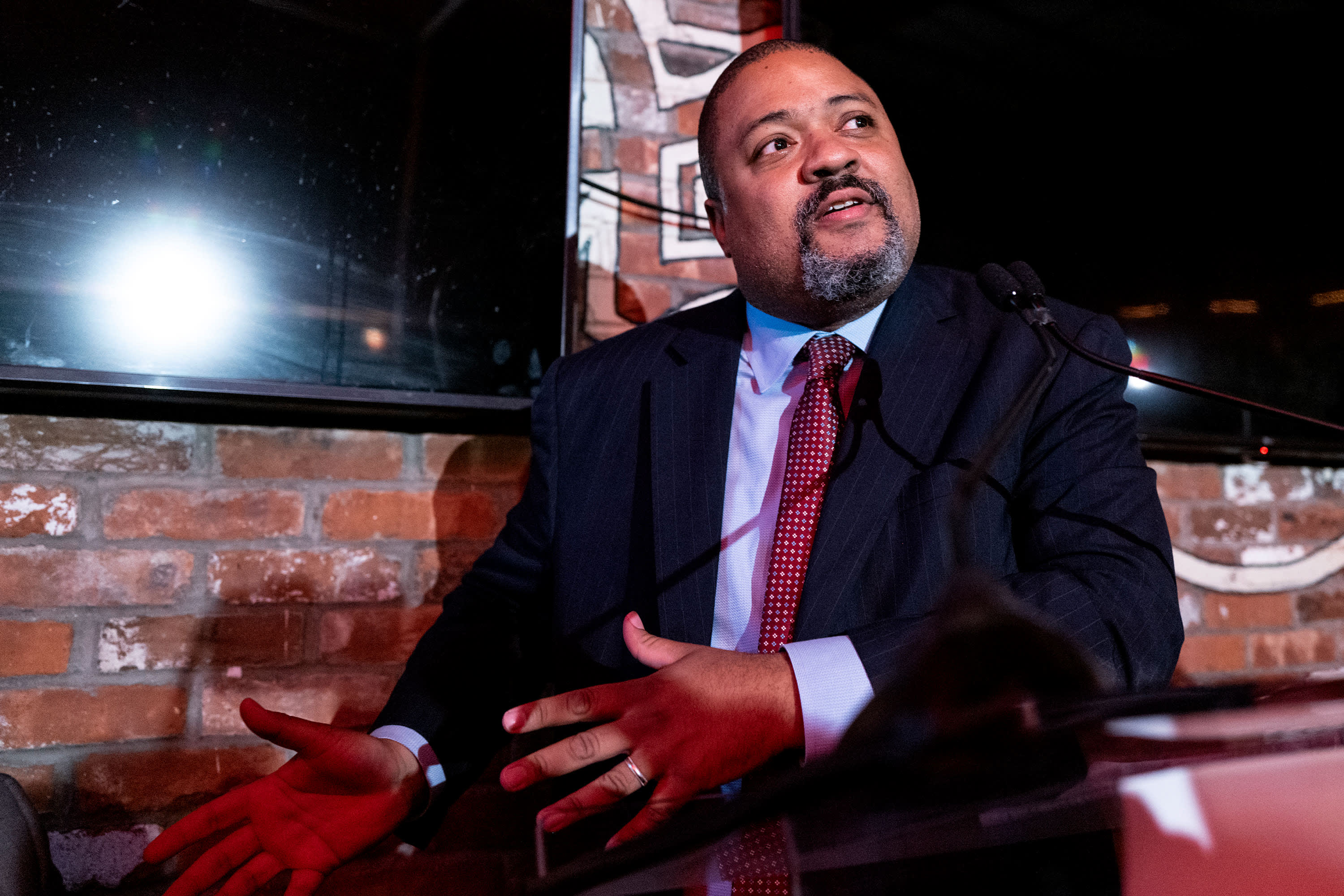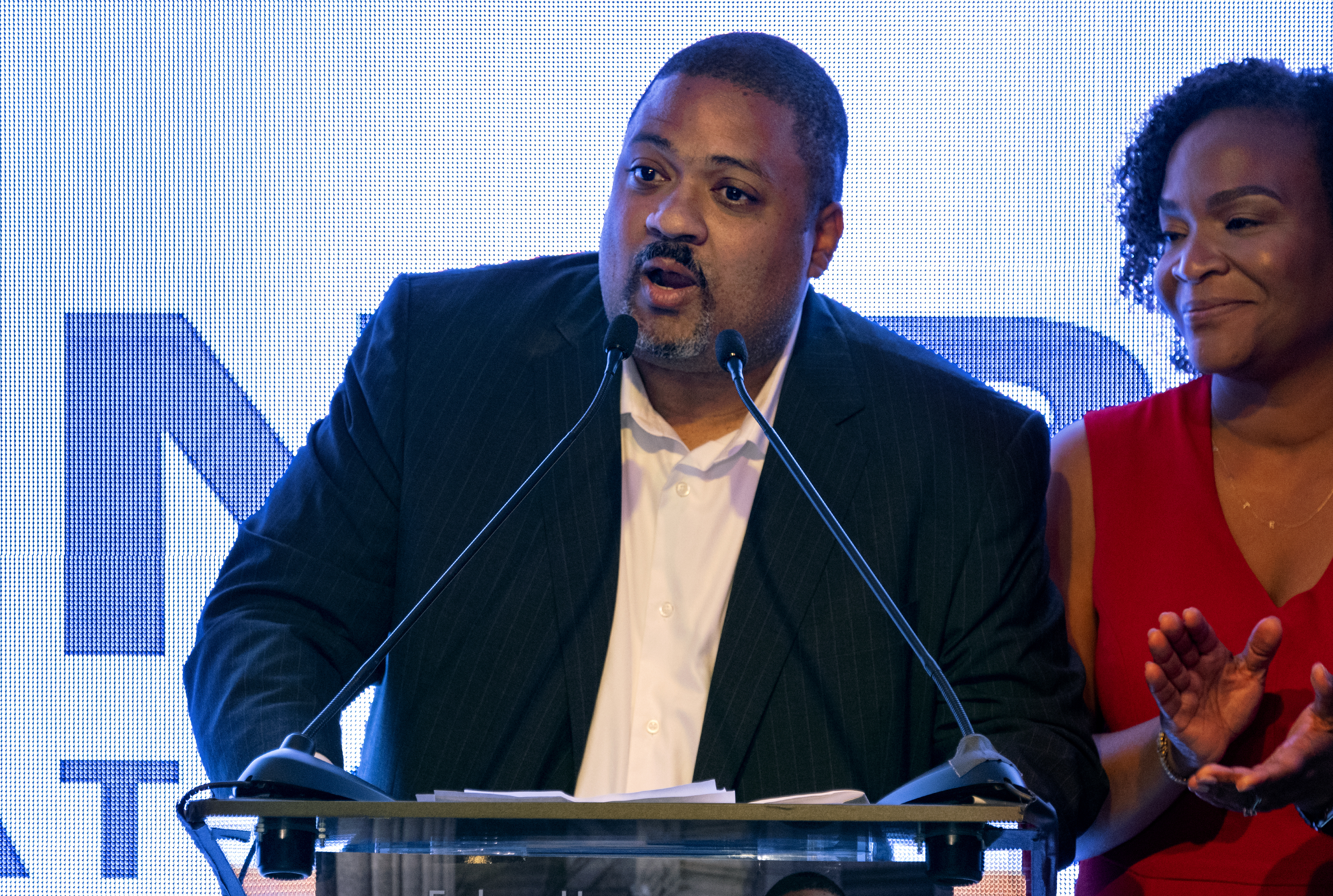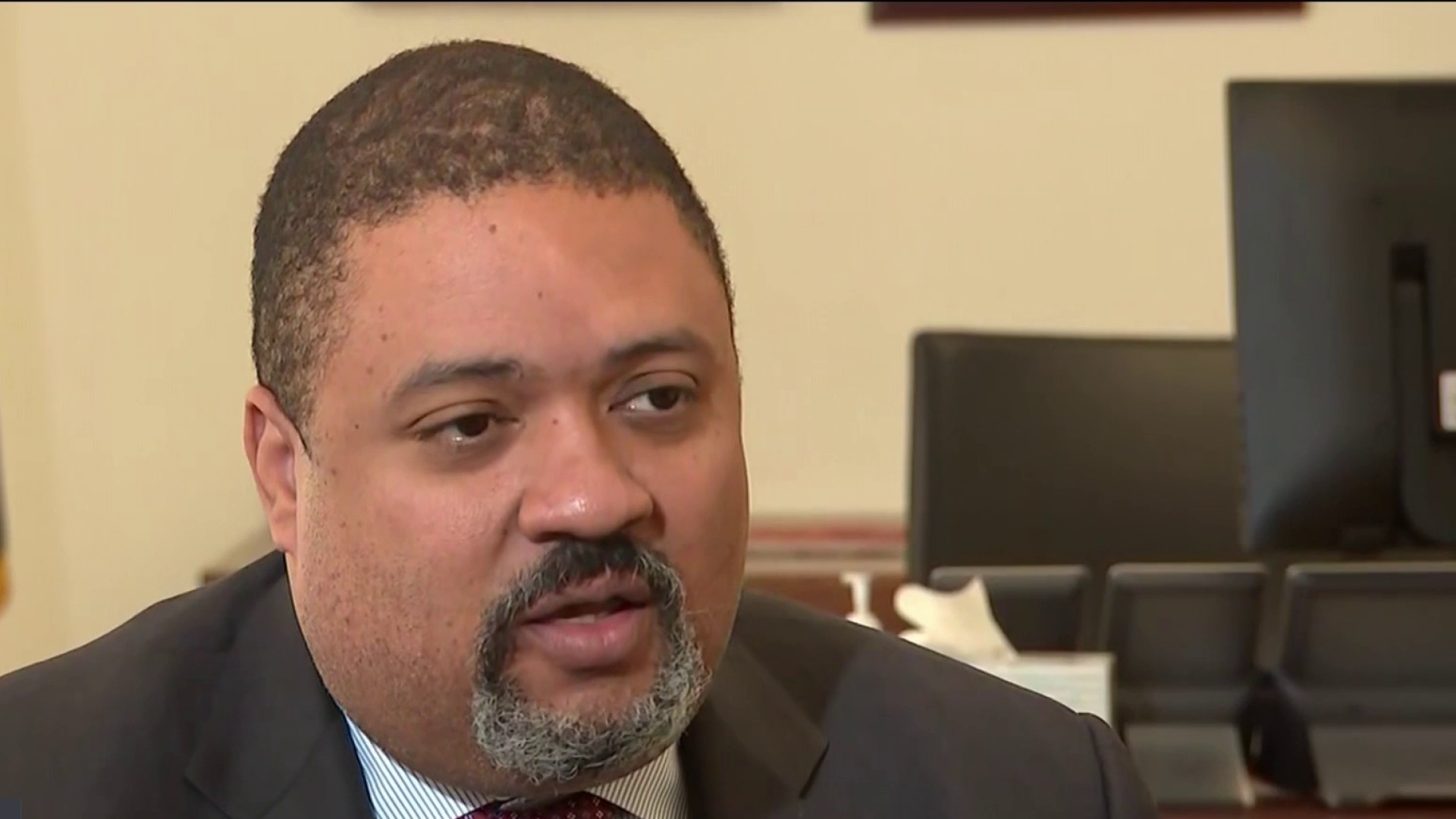What to Know
- The Manhattan District Attorney's Office announced the creation of Pathways to Public Safety Division to use alternatives to incarceration across the district attorney's office.
- Manhattan District Attorney Alvin Bragg, Jr. said that the restructuring of the district attorney's office will strengthen its alternatives to incarceration, specialized court parts, pre-arraignment diversion, restorative justice practices, and reentry.
- The news is the latest development in Bragg's relatively new term as Manhattan's top prosecutor, a term that has been marred with controversy.
The Manhattan District Attorney's Office announced the creation of Pathways to Public Safety Division to use alternatives to incarceration across the district attorney's office.
Manhattan District Attorney Alvin Bragg, Jr. announced Monday the creation of the division to further use diversion and evidence-based programming to "ensure individuals involved in the criminal justice system receive necessary services to reduce recidivism and enhance public safety."
“The Pathways to Public Safety Division will secure dynamic, individually tailored outcomes that are proven to keep our communities safe while giving our fellow New Yorkers the help they need,” Bragg said in a statement.
Get Tri-state area news and weather forecasts to your inbox. Sign up for NBC New York newsletters.
“By identifying opportunities for diversion at the beginning stages of a case, instead of weeks to months after an arrest, we can increase effectiveness and break cycles of recidivism," Bragg went on to say in his statement. "Pathways will provide prosecutors with support and resources from screening through sentencing, incorporating alternatives to incarceration into the bedrock of the Office’s work. That means identifying candidates for programming as early as possible, while closely monitoring an individual’s progress throughout – ensuring accountability instead of a revolving door.”
According to Bragg the restructuring of the district attorney's office will strengthen its alternatives to incarceration, specialized court parts, pre-arraignment diversion, restorative justice practices, and reentry.
Pathways will also provide each of the six existing Trial Division bureaus with a specific prosecutor to serve from arraignment to sentencing to identify individuals who would benefit from diversion and programming without jeopardizing community safety.
Pathways will be lead by Division Chief Sherene Crawford, who served as an Assistant D.A. in Manhattan from 2009 to 2014. According to Bragg, the division will transform the district attorney's practices relating to:
- Specialized Court Parts, including the Alternatives to Incarceration Court Part, Mental Health Court, Veterans Treatment Court, Human Trafficking Intervention Court, the Youth Part, and more.
- Diversion Opportunities and Alternatives to Incarceration, including programming through Manhattan Justice Opportunities and pre-arraignment diversion programs such as Project Reset and Project HOPE, as well as the Office’s restorative justice practices.
- New Yorkers Re-Entering Communities from Incarceration, including the Reentry Task Force.
"The new Pathways to Public Safety Division is a vital measure for reducing recidivism and making our borough safer,” State Senator Brad Hoylman said in a statement.
Councilmember Carmen De La Rosa shared similar sentiments saying that "the creation of District Attorney Bragg’s Pathways to Public Safety Division will help proactively identify opportunities for diversion at the beginning stages of a case, instead of days, even months after their arrest, thereby increasing both effectiveness and safety."
Meanwhile, Jonathan Lippman, former chief judge of New York State and current chair of the Independent Commission on New York City Criminal Justice and Incarceration Reform, said he commended Bragg for creating the new division "will promote consideration of all reasonable evidence-based options to hold people accountable and promote rehabilitation."
“Incarceration is appropriate in certain cases, particularly those involving violence. However, the best route to safety is very often via community-based dispositions that aim to address people's underlying problems and break the cycle of recidivism. DA Bragg understands this and his creation of the Pathways to Public Safety Division very much serves that interest," Lippman said in a statement.
The news is the latest development in Bragg's relatively new term as Manhattan's top prosecutor, a term that has been marred with controversy.
Just last month, Bragg sent out a letter to prosecutors clarifying what he called some of the "confusion" from an initial memo regarding prosecutorial guidelines that were met with pushback.
Bragg took office on Jan. 1 and came under fire almost immediately for a set of guidelines he issued to prosecutors, ordering them not to charge certain crimes at all and to downgrade others to lesser charges.
Among the most controversial of those changes was an order not to prosecute some instances of resisting arrest, and another mandating that felony armed robbery be downgraded in many cases to misdemeanor shoplifting.
His order came against a backdrop of sharply rising crime in New York City. In the NYPD's Patrol Borough Manhattan North, major crimes are up 23% this year versus the same period last year, led by a 43% increase in robberies.
Shooting incidents have almost doubled as well. The numbers are even higher in the Patrol Borough Manhattan South.
The widow of one of the two NYPD officers killed by a gunman when they responded to a domestic disturbance call last month further fueled the firestorm around Bragg, saying in a tear-filled eulogy, "The system continues to fail us. We are not safe anymore, not even the members of the service."
However, in the letter Bragg sent out Feb. 4, his office clarified that it will prosecute robberies with weapons as felonies, that gun possession cases will be default prosecution as felonies, and any attempt at violence against police will be prosecuted.
"In the last month, I have seen, first-hand, your tireless, great work on behalf of New Yorkers. And I have received valuable feedback on the January 3rd Memorandum," Bragg's letter, which was obtained by News 4 New York, read in part. The January 3rd Memorandum was intended to provide ADAs with a framework for how to approach cases in the best interest of safety and justice. Our collective experience, however, has been that the Memorandum has been a source of confusion, rather than clarity."
The letter of clarification goes on to state that a commercial robbery with a gun will be prosecuted as a felony, whether or not the gun was "operable, loaded, or a realistic imitation."
"A commercial robbery at knifepoint, or by other weapon that creates a risk of physical harm, will be charged as a felony. In retail thefts that do not involve a risk of physical harm, the Office will continue to assess the charges based on all of the aggravating and mitigating circumstances presented," Bragg's letter said.
Additionally, according to the clarification letter, people in possession of guns will be prosecuted.
"Gun possession cases are a key part of our plan for public safety. People walking the streets with guns will be prosecuted and held accountable," the letter said. "The default in gun cases is a felony prosecution. We also will use gun possession cases as an opportunity to trace the sources of illegal guns and build cases against gun traffickers."
The letter also states that violence against police officers "will not be tolerated."




